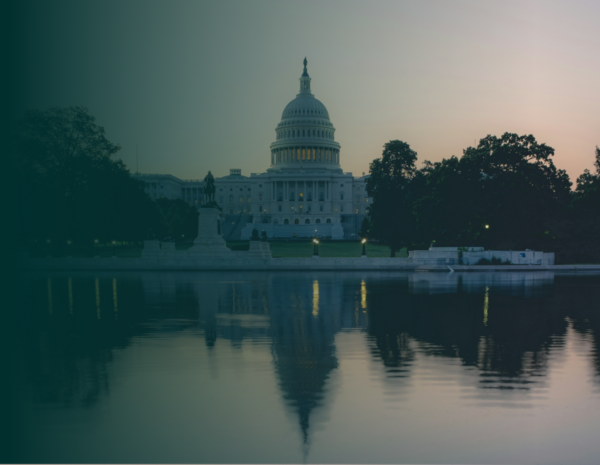The 2024 presidential election is right around the corner. In the lead-up to the election, understanding that voting laws vary state-by-state is crucial. This guide offers a concise overview of the evolving landscape of election regulations.
Each state’s unique approach to elections shapes the democratic process. Between factors like mail-in-voting and voter ID requirements, navigating voting laws is complicated. What’s more, the 2020 election raised concerns over election integrity and the security of our democracy. Heightened scrutiny on absentee and provisional ballots led many legislators to seek to modify our election process. As a response, voting rights advocates aim to break down barriers to voting.
What’s the status of new voting laws, and how will they impact the 2024 elections? This guide aims to help Americans navigate and understand the upcoming election.
Election Controversy in 2020
The 2020 presidential election was marked by confusion and controversy. Following his loss, former President Donald Trump questioned the accuracy of the election. There was surprise among election experts and citizens alike that historically Republican states like Arizona and Georgia went blue. This unprecedented outcome, paired with Trump’s claims, led to a slew of recounts, lawsuits, and calls of fraudulence.
Scrutiny and public outcry, though largely unfounded, sowed widespread concern and unrest. On January 6, 2021, then-President Trump hosted a rally in front of the White House. On that day, Congress was set to verify the results of the 2020 election. This gathering quickly became what is now known as the “January 6th Insurrection.” Thousands of rally attendees approached the Capitol and broke into the building, killing five and leaving 174 injured.
Since the 2020 election, lawsuits on election interference have mostly been settled. Each recount returned without evidence of fraud or election interference. Though these outcomes are positive news regarding the security of our democracy, high levels of distrust remain.
New Voting Laws in 2024
Election laws have been a significant focus of legislative action in the United States since the 2020 and 2022 elections. As of the fall of 2023, 14 states have enacted laws that decrease access to voting. On the other side of the issue, 23 states have enacted laws that expand access to voting. All of these bills will be in effect during the 2024 general election.
Efforts to Expand Access to Voting
In 2024, 23 states enacted expansive voting laws, including Michigan, New York, Nevada, and Connecticut, among others. Learn more about new voting laws passed in these states below.
Michigan SB 367, SB 370, HB 4697, and SB 373
The Michigan legislature passed SB 367, SB 370, HB 4697, and SB 373 as part of a comprehensive “democracy reform” package. As part of the package, SB 367 expands access to nine days of early voting. The next bill, SB 370 provides an easier process to vote by mail. HB 4697 allows for increased access to drop boxes. Finally, SB 373 sets forth a more expansive list of accepted identifications.
New York A 4009, S 1733, and S 5984
In New York, the state legislature passed A 4009, S 1733, and S 5984 in an effort to expand voting access through various avenues. A 4009 requires correctional facilities to provide voter registration forms to formerly incarcerated people. Next, S 1733 requires high schools to provide voter registration forms to students. Finally, S 5984 allows citizens to register to vote closer to election days.
Nevada SB 327, SB 216, and AB 286
The Nevada legislature passed SB 327, SB 216, and AB 286. The laws make it easier for certain historically disadvantaged populations to vote. In particular, SB 327 and SB 216 make it easier to vote on Native Reservations. In addition, AB 286 makes it easier for incarcerated individuals to vote from jail.The new laws also increase accommodations for people with disabilities to exercise their right to vote.
Connecticut SB 1226
Finally, the Connecticut state legislature became the sixth state to enact a Voting Rights Act with SB 1226. This came as a result of recent Supreme Court decisions regarding voting. It was an attempt to ensure the discrimination protections provided by the Voting Rights Act are enshrined in state law. Under the new law, municipalities with a history of discriminatory practices are subject to enhanced oversight. The law also created a higher threshold of protection against voter intimidation in the state.
Efforts to Restrict Access to Voting
In 2024, 14 states enacted laws restricting voting rights and access, including Nebraska, Mississippi, and Texas, among others. Learn more about new voting laws passed in these states below.
Nebraska LB 514
The Nebraska legislature adopted LB 514. The new law requires all mail-in ballot voters without a Nebraska ID to mail in a copy of an approved photo ID alongside their ballot. There are few expectations to this rule, of which do not include the inability to access a printer or photocopier. Therefore, the new law may prevent voters from casting their ballot if they cannot access a printer.
Mississippi SB 2358
In Mississippi, the state legislature passed SB 2358. Under the new law, anyone who is not an election official, postal worker, family member, household member, or caregiver and assists a voter with turning in their ballot will receive criminal penalties. Voting rights advocates argue that the new law will make it more difficult for people with disabilities to vote by mail.
Texas SB 924
The Texas legislature passed SB 924, which will allow counties to consolidate polling locations. The new law increases the likelihood of long wait times for voters. It may also require voters to travel a further distance in order to reach their appropriate polling location.
Overall, the most common forms of restrictive voting legislation include:
- Curbing access to mail-in voting
- Increasing voter ID requirements
- Banning the use of ballot-drop boxes.
It’s been proven that access to mail-in voting, ballot drop boxes, and less stringent voter ID laws make voting more accessible to low-income or otherwise disadvantaged Americans.
Implications for the 2024 Elections
Elections immensely impact economic, social, and political issues throughout the country. Presidential elections only increase these implications, since it’s possible that the entire Executive Branch will be transformed and guided by new priorities, strategies, and goals. Evaluating these implications is a key step in determining which candidate to vote for. Below, we summarize some of the economic, social, and political issues that the 2024 presidential election will impact.
Economic Implications of the 2024 Election
The Biden and Trump Administrations have very different strategies on key economic issues. Key economic issues include inflation, taxes, and corporate responsibility. The differences in these policies are crucial — they have a direct impact on job creation, the income of families, and the stability of the economy. Economic issues will play a major role in shaping how voters decide, reflecting what’s best for their own and their community’s financial health.
Social Implications of the 2024 Election
The 2024 election is generating significant discussion, especially when it comes to social topics. Biden and Trump have vastly different views on many social issues. They disagree on key issues like abortion, LGBTQ+ rights, affirmative action, and climate change. Social issues go beyond politics; they touch everyday life. Social issues will play a significant role in the 2024 election, as voters weigh the candidates based on their own values.
Political Implications of the 2024 Election
In the political arena, the outcome of the 2024 election holds significant consequences for the opposing party. The landscape of bipartisanship has grown increasingly fraught in recent years. Consequently, navigating a divided government poses considerable challenges in advancing policy initiatives. The election results could substantially influence the legislative process.
Check Your Voter Registration and Make a Plan to Vote
Ensuring you are registered to vote can be a complicated process. This is especially true if you are new to voting, have recently moved, or recently obtained citizenship. The best way to check your voter registration status within your state is through the U.S. government voter registration website. You’ll be directed to your state’s voter registration status website based on your address and information.
Many states have voter registration deadlines of 15+ days prior to the election. This means you must be registered and confirmed prior to that deadline in order to vote in the election. Further, if you have recently moved, even within the same state or district, you must update your voter registration status with your state. Many states allow voters to provide this update electronically. These rules apply to general elections, special elections, and primary elections throughout the United States.
Different voting methods will require a more detailed plan that differentiates between states. See our tips below.
In-Person Voting
Voting in-person means you have ensured you are registered to vote within your state. If you’re voting in-person, you’ll be notified of your polling location to cast your ballot.
Before arriving to vote, be sure to double check your polling location for each election. It’s not uncommon that a polling location will have moved from the last election due to staffing issues, or space availability.
Absentee Ballot
Absentee ballots are similar to vote-by-mail ballots in that you are able to send in your ballot through mail. There are a few circumstances in which voting through an absentee ballot are accepted. These include if you are out of state during the election or if you are military personnel and currently abroad, or on an out-of-state military base, among others. Many states require absentee voters to provide a credible reason for their need to vote in this way.
Follow this link to find out if your state allows you to vote via an absentee ballot.
Mail-In Ballot
Mail-in ballots are official programs implemented by state governments allowing people to vote by mail in any election. When voting with a mail-in ballot, voters won’t be required to provide justification as to why they are not voting in-person.
Vote-by-mail programs have seen increases in voter turnout. They provide voters with the flexibility of mailing their ballot weeks or days ahead of the election. Vote-by-mail programs allow voters with inflexible responsibilities to vote when it works best for them.
Provisional Ballot
Provisional ballots are available for people whose names do not appear on the voter registration list at the precinct. Sometimes this is the result of a mistake — the individual either appeared at the wrong precinct, or thought they were registered to vote but did not complete their registration. In these situations, the individual may cast a provisional ballot. The Registrar’s office will confirm that the individual is able to vote in the election.
Get Started With Plural to Monitor New Voting Laws in 2024
The 2024 elections are right around the corner — are you prepared and informed on new voting laws? Plural is the policy tracking tool of choice for those looking to monitor new voting laws in 2024. With Plural, you’ll:
- Access superior public policy data
- Be the first to know about new bills and changes in bill status
- Streamline your day with seamless organization features
- Harness the power of time-saving AI tools to gain insights into individual bills and the entire legislative landscape
- Keep everyone on the same page with internal collaboration and external reporting all in one place
Interested in getting started? Create a free account or book a demo today!
More Resources for Public Policy Teams
Guide to Preparing for Congressional Testimony
Effective preparation for Congressional testimony requires a meticulous blend of strategy, knowledge, and execution. Download now!
Government Affairs Strategy Guide
This government affairs strategy guide equips your team with insights and tips to navigate interactions with government. Download now!
Georgia’s 2023-2024 Legislative Session: End-of-Session Report
Georgia legislators wrapped up their 2023-2024 legislative session early on Friday, March 29th. The adjournment brought to a close a session that was closely followed both nationally and by those within Georgia. Read our analysis.



